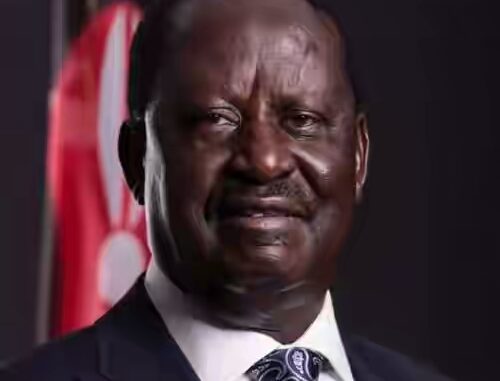
Kenyan opposition leader Raila Odinga has finally made his decision on his country’s disputed polls: he would challenge the result in the country’s Supreme court.
His decision expectedly calmed fears that he would call further street protests by his supporters, which may lead to widespread violence.
At least 24 people have been killed since the Aug. 8 vote, many of them shot by police. But while there have been scattered protests in Odinga strongholds, the demonstrations were relatively muted as supporters waited to hear what Odinga had to say.
When Odinga, a 72-year-old former political prisoner, called a news conference after days of public silence, crowds clustered around televisions and radios in the slums, falling silent as he began to speak.
“We have now decided to move to the Supreme Court,” Odinga told a bank of television cameras in the capital Nairobi. “This is just the beginning, we will not accept and move on.”
The election board said on Friday Kenyatta had beaten Odinga by 1.4 million votes to win a second five-year term. Odinga disputes that figure but has not yet provided proof of rigging.
The move to the judiciary will relieve Kenyans who feared a repeat of the violence that followed the flawed 2007 vote, when Odinga called for protests which led to a police crackdown and ethnic violence. Around 1,200 people died.
Odinga also contested – and officially lost – the 2013 election but quelled potential violence by taking his case to court. Judges ruled that much of his evidence was submitted outside time limits set by the court, which raised suspicion among his supporters of the judiciary’s independence.
Odinga acknowledged those frustrations, even as he backtracked on earlier opposition statements that going to court was not an option.
“Our decision to go to court constitutes a second chance for the Supreme Court. The court can use this chance to redeem itself,” he said.
His announcement follows days of intense behind-the-scenes negotiations, with diplomats urging him not to call for protests. International and domestic observers have said the polls were largely free and fair.
Odinga has accused observers of supporting the government, but an international official who has been in contact with both sides in recent days said Odinga has struggled in talks to clearly make his case for fraud.
Another international observer said Odinga’s team had identified 11 polling stations where the opposition had proof of problems – far too few to overturn the results.
*NAN